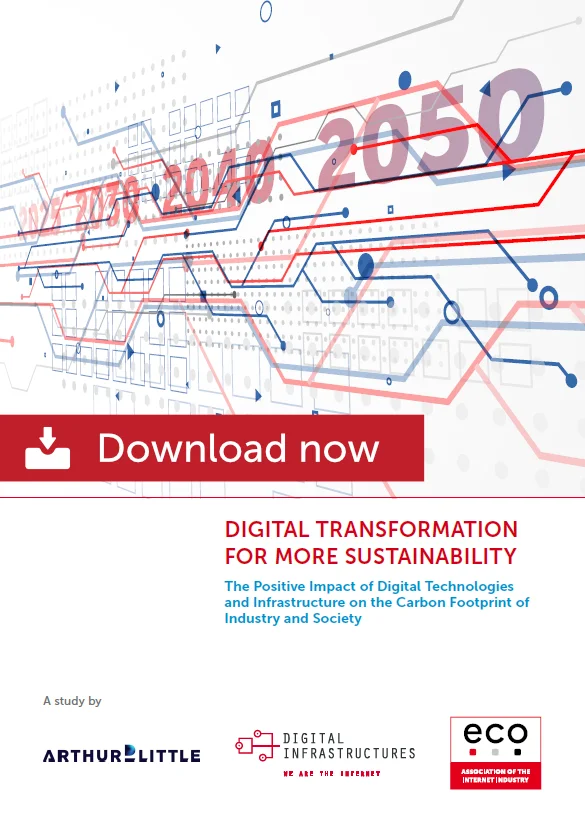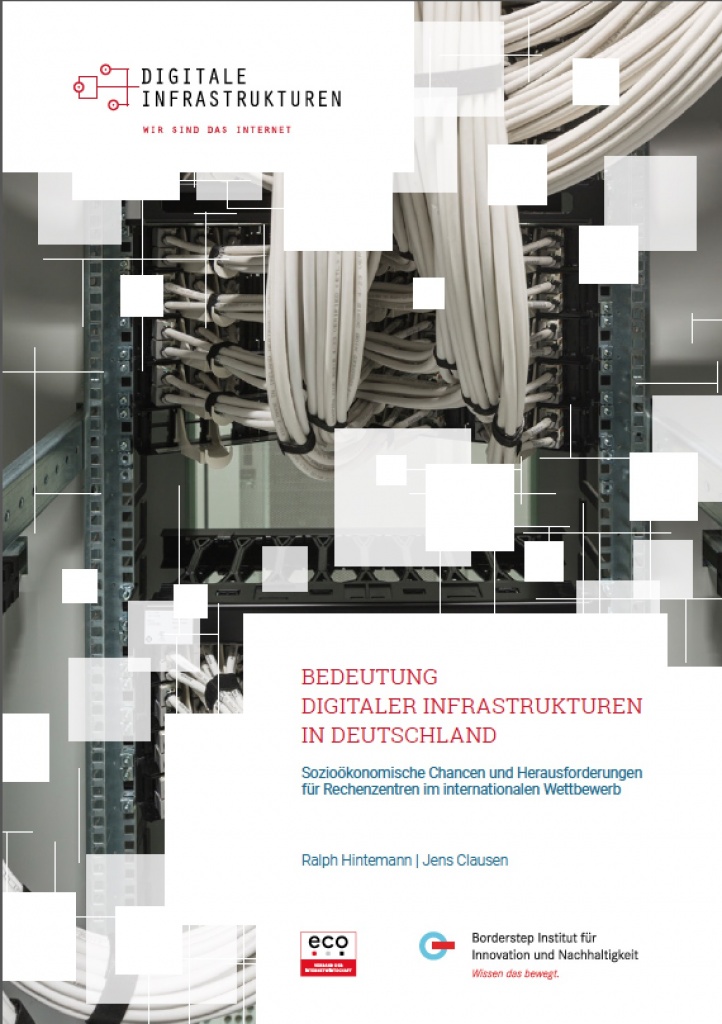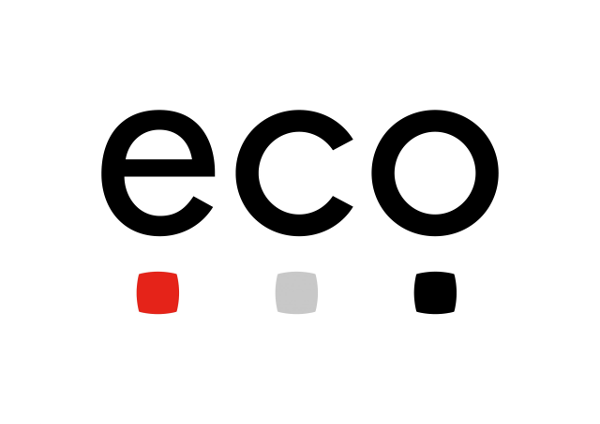Studies & White Papers
Spillover Effects of Data Centres: The Backbone of the AI Revolution in Germany

.Artificial Intelligence (AI) acts as a catalyst for greater productivity, innovation and efficiency, unlocking enormous growth potential not only for businesses but also for Germany as an economic hub. Digital infrastructures, particularly data centres, play a central role in this development as the driving force of digital transformation, providing the necessary computing power, data processing and networking.
The new study “Spillover Effects of Data Centres – The Backbone of the AI Revolution in Germany,” conducted by the German Economic Institute (IW) on behalf of the Alliance for the Strengthening of Digital Infrastructures under the umbrella of the eco Association, examines the innovation potential of AI through a company survey and quantifies the spillover effects of data centres, such as their impact on employment and revenue growth in the context of the AI revolution..
Digital Transformation for More Sustainability

How can digital technologies and infrastructures contribute to greater climate protection and thus support the achievement of climate goals? This question is addressed by the study “Digital Transformation for Greater Sustainability: The Positive Impact of Digital Technologies and Infrastructures on the Carbon Footprint of Industry and Society,” published by the eco Association in collaboration with the Alliance for the Strengthening of Digital Infrastructures and Arthur D. Little (ADL).
Using the ADL sustainability model, the study demonstrates how digital infrastructures, technologies, and applications can enable efficient use of resources and reductions in CO₂ emissions in industry, cities, and rural areas by 2050.
Data Centres in Europe – Sustainability & Digitalisation (Part 2)

Are European data centres ready for the climate targets of the EU Green Deal? And which best practices can already be used to tap into technological development potential and political recommendations for the data centres of the future?
Insights on these questions are offered by Part 2 of the study, “Data Centres in Europe – Opportunities for Sustainable Digitalisation”, commissioned by the eco-founded Alliance for the Strengthening of Digital Infrastructures in Germany and undertaken jointly with the Borderstep Institute, and supported by the Vodafone Institute.
Data Centres in Europe – Sustainability & Digitalisation (Part 1)

What roles do data centres and digital infrastructures play in the field of environmental sustainability? And how can smart energy concepts contribute to achieving climate goals?
Insights on these questions are provided by a new study commissioned by the eco Association for the Alliance for the Strengthening of Digital Infrastructures in Germany, conducted by the Borderstep Institute and supported by the Vodafone Institute.
Study “The Importance of Digital Infrastructures in Germany”

How do German data centres compare internationally? And what challenges are operators of digital infrastructures currently facing? These questions are addressed in the study “The Importance of Digital Infrastructures in Germany”, jointly prepared by eco and the Borderstep Institute.
Whitepaper “Waste Heat in the Data Centre”

If climate protection is to be taken seriously, waste heat from data centres should be utilized sensibly. Many national and international examples already demonstrate that this is possible.
A white paper produced by the Network of Energy Efficient Data Centres (NeRZ) in collaboration with eco provides information on how the intelligent utilization of waste heat can not only increase energy efficiency, but also the economic performance of German data centres.

